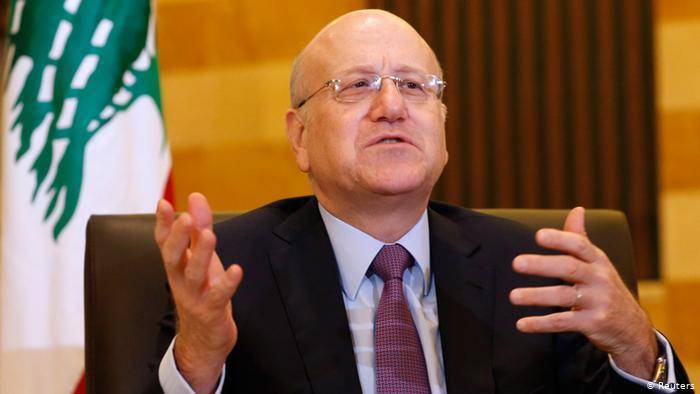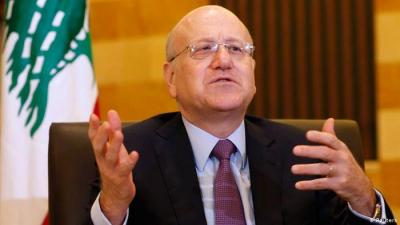Despite President Michel Aoun's assurance that the presidency has no role or connection to the judicial procedures related to the banking file, several parties link the decisions and measures taken by the Mount Lebanon Prosecutor General, Judge Ghada Aoun, against bankers and Central Bank Governor Riad Salameh, most recently the arrest of his brother Raja Salameh, to a "Aoun-Bassil timing," particularly with an eye on electoral exploitation. They note that other significant judicial files have been neglected by Aoun or are not being followed with the same urgency, arguing that "the approach to the banking issue, regardless of responsibilities, should not be handled in this way or through selective targeting that, instead of benefiting depositors, increases their hardships."
From this perspective, and given the rush of the Prime Minister to contain this issue, through his meeting yesterday with Justice Minister Henri Khoury or by discussing it with the President and inviting him to a Cabinet meeting today to address these judicial developments, some see that Mikati is drawing a red line against the targeting of the banking system, particularly Salameh, and may resort to placing his resignation on the table if this issue is pushed further. Notably, Mikati emphasized yesterday that "the judiciary has the right to investigate any financial and banking file… however, using populist and police methodologies in the course of investigations has harmed and continues to harm the judiciary first and the banking system as a whole," asserting that "it is clear that the current course of events, under some judges, is pushing towards provoking unwanted tensions, and there are attempts to exploit this tension in electoral campaigns."
Political entities interpreted this statement as a clear message to some parties, primarily the President, conveying that "this matter will not pass." For their part, sources close to Mikati state: "The interpretation of this statement is left to each political party; however, Mikati's relationship with Aoun is good, and the collaborative formula in the Cabinet is evidence of this. There is a tangible relationship of good cooperation between the two presidents at the decision-making level. As for political messages, each party interprets them as they see fit."
They indicate that "judicial independence is an accepted principle for Mikati, but he has concerns about the continuity of institutions and their preservation at this stage. Aside from that, each party interprets the statement as it understands it. The broad title for Mikati at this stage is: not to exploit our disagreements in the electoral context, as it exacerbates the crisis we are experiencing."
Furthermore, Mikati "is not setting red lines, neither on Salameh nor others; rather, his primary concern is not to undermine institutions," according to these sources, who add: "Letting the judiciary take its course is a given, but in the current situation in Lebanon, there is a particular concern, and Mikati is trying to navigate this phase without additional shocks."
They ask: "For instance, if banks closed their doors to depositors and citizens, what would happen? Can anyone envision such a scenario?" They stress that "the concern and the objective is not to touch or destroy the institutions at this stage, and the judiciary knows its work."
On the other hand, there is another viewpoint that states: "There is evidence against Salameh and bankers, and there are open judicial files against him in several European countries? Should the Lebanese judiciary ignore them to avoid being accused of exploiting them for the benefit of political parties? What is the alternative, considering that the political authority has not moved to protect depositors' rights, at the very least, by passing a 'Capital Control' law? What has this government done regarding this crisis?"
This viewpoint is countered by sources close to Mikati, indicating that "there are contradictions even within the judicial or political body, making it difficult to navigate issues without a clear roadmap. We have tried to allow institutions to play their roles, but the deterioration has led to fragmentation even within a seemingly clear body, creating confusion." They affirm that "Mikati's main focus is on the separation of powers," pointing out "the degree of contradiction in Lebanese practice and institutions."
They note that "the government is trying to navigate this phase with the minimum possible, having approved aid and grants for public sector employees, while the banking issue specifically relates to the Central Bank, which has issued a series of directives to address it. However, in the parliament, which should have approved the 'Capital Control' law, there is no agreement, and this proposal is still trapped in discussions and disputes."
They clarify that "the issues will be put in their proper context through the recovery plan that will unfold over the coming years and is expected to be implemented after the electoral process, which currently takes precedence in both the executive and legislative authorities; this plan includes the banking issue."
These same sources emphasize that "banks that have adhered to sound policies will continue, while speculative banks that have not complied with risk ratio standards will pay a price. But Prime Minister Mikati, ultimately, does not want to complicate matters in a way that impacts the people; he is defending institutions, not individuals, as the continuity of the Central Bank and banks is in the public's interest first."
Regarding Mikati's potential resignation in exchange for action against Salameh, sources close to the Prime Minister believe that "such suggestions are mere speculation and political conjecture," affirming that Mikati's resignation "is not on the table, especially given the circumstances we are living in, otherwise we would plunge into chaos and leave the country to its fate. If there is no authority with full powers to make the minimum required decisions to keep the wheels of the state turning, everything will stop, and we will enter the unknown."




